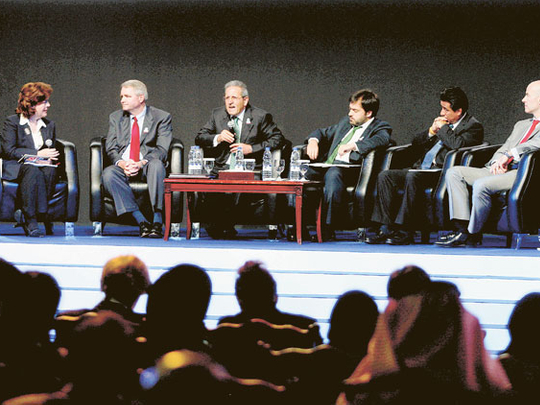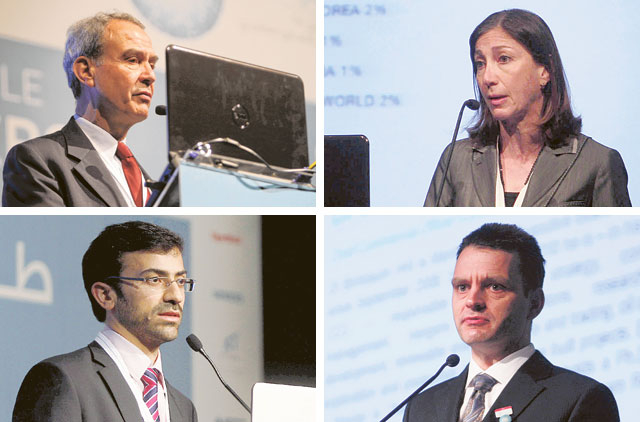
Dubai: The six Gulf states must add about 8 gigawatts (GW) of power generation capacity per year to cope with growing demand, Dr Abdullah Al Shehri, CEO of Saudi Arabia's Electricity and Co-generation Regulatory Authority (ECRA), said at the Dubai Global Energy Forum.
"The GCC states have been witnessing a very high electricity demand growth over the last decade. The 2010 peak demand in the six GCC states exceeded 82 GW.
"The average annual growth rate was about 6 per cent and exceeded by 10 per cent in some states last year," Al Shehri said.
This trend is expected to continue over the next two decades and the expansion of power generation capacity in the GCC countries is a need, he said.
Peak demand
"The peak demand in Saudi Arabia, for example, which represents about 56 per cent of the GCC peak power demand, is expected to grow from 46GW in 2010 to more than 120GW in 2030," he said.
To meet this high growth, Al Shehri recommended an addition of generation capacity of about 8 GW per annum.
"The investment needed in the expansion of power generation, transmission, and distribution capacities will take a heavy toll on the governments' budgets unless serious measures are considered to rationalise the consumption and find innovative means to fin-ance these projects."
The electricity demand patterns in the GCC countries share common characteristics, Al Shehri said,
"These include, but are not limited to, low utilisation efficiency, dominance of non-industrial consumption, low electricity tariffs, and high government subsidies."
Moreover, the energy supply is characterised by low efficiency due to low subsidised fuel prices, and is composed mainly of fossil fuel burning generators.
Restructuring
Pointing to the need for private-public partnerships in the utility sector, Al Shehri remarked that the power systems are owned totally or partially by governments and most of them are still run by government entities.
However, he clarified that during the last decade some countries have adopted restructuring policies aimed at reducing the governments' involvement in financing, managing and running the electricity sector and allowing wide participation of the private sector.
"The private sector participation differs from one country to another in the GCC. Also, some programmes to diversify generation sources have been considered and are expected to enhance the efficiency of supply and reduce the dependence on fossil fuels.
"These programmes include the introduction of nuclear and renewable sources," Al Shehri said.













